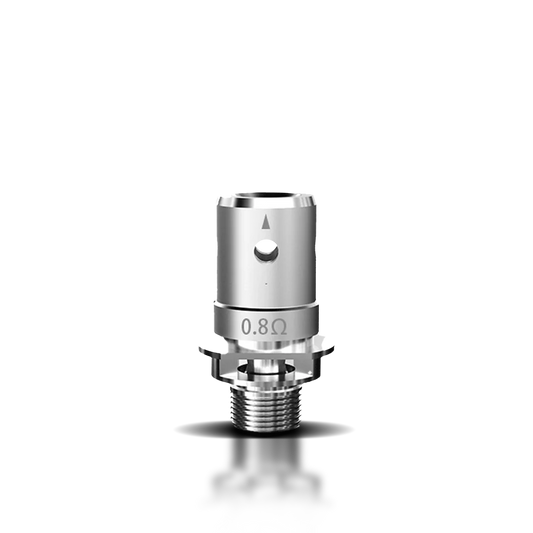
The future of vaping tech: smart pods, biometrics and beyond
Vaping has always been shaped by technology. From the earliest cigalikes to today’s powerful mods and sleek pod systems, each leap forward has changed how we consume nicotine, how we interact with devices and how society perceives vaping. But the real disruption may still be ahead. The future of vaping tech is moving towards integration with smart systems, biometric data and AI powered personalisation. These innovations promise safer, more efficient and more tailored experiences, but they also raise questions about privacy, accessibility and the culture of vaping itself.
From cigalikes to smart pods: the evolution so far
Early vaping devices mimicked cigarettes, offering familiar shape but limited performance. Then came box mods and sub ohm tanks, unlocking flavour and clouds at the expense of complexity. Pod systems simplified everything, balancing convenience and performance. Today, pod mods bridge the gap, offering adjustable airflow and wattage in compact forms. This arc of evolution points towards one trend, making vaping easier, smarter and more integrated into daily life. The next step is smart pods, devices that connect, analyse and adapt in real time.
Smart pods and connectivity
Smart pods are already emerging, featuring Bluetooth connectivity and app integration. These devices can track puff counts, monitor nicotine intake and even lock when not in use. For parents worried about youth access, lockable pods offer control. For users interested in health, intake tracking creates awareness. Imagine a pod system that reminds you when you have hit your daily nicotine goal, or that suggests switching to lower strength nicotine salts when you are ready to cut down. The future of vaping tech is not just about producing vapour, it is about guiding behaviour.
Biometrics and personalisation
The integration of biometrics could take vaping into uncharted territory. Fingerprint sensors already exist in phones and locks, why not in vape devices? A fingerprint locked pod could ensure only the owner uses it, preventing theft or underage use. Heart rate monitors could adjust nicotine delivery based on stress levels, providing calming support when needed. SpO2 sensors, already common in wearables, could track oxygen saturation while vaping, feeding data back to users. These technologies blur the line between vaping device and wellness tool, creating personalised experiences that adapt in real time.
Artificial intelligence in vaping
AI is transforming industries, and vaping may be next. AI algorithms could analyse puff patterns, suggest optimal coil resistance or wattage and even recommend e liquid flavours based on past preferences. Smart recommendations might tell you that dessert flavours dominate your evenings while fruit blends fit your mornings. For new vapers, AI could simplify the learning curve, preventing dry hits or burnt coils by auto adjusting power. For experienced users, it could optimise flavour and cloud production. AI may turn vaping into a tailored experience as unique as your fingerprint.
Safety through tech
Safety remains a priority. Future devices could feature sensors that detect counterfeit pods or unsafe batteries, locking the device automatically. Temperature sensors could prevent overheating, while chemical sensors might analyse vapour to ensure purity. Blockchain technology might even be used to verify supply chains, giving vapers confidence that liquids bought from shops like Vape Lounge UK are authentic and compliant. Safety innovations could make vaping even less risky than it already is compared with smoking.
Data, privacy and control
With smart pods and biometrics comes data, and with data comes responsibility. Who owns the information about your puff count or nicotine intake, you or the company that made the device? Could insurance firms use it to raise premiums, or governments to impose restrictions? The future of vaping tech must balance innovation with privacy. Vapers need control over their own data, not just the ability to vape smarter but the right to keep their habits private. Transparency from manufacturers will define trust as much as device performance.
Impact on culture and community
Vaping culture has always been about freedom of choice, from flavour variety to device tinkering. The rise of smart pods and AI may shift this culture. On one hand, it could make vaping more accessible, guiding beginners through the process. On the other, it could reduce the DIY spirit that drives mods and coil building. Community debates will shape how these technologies are received. Will the culture embrace biometric locks and data driven pods, or resist them as too corporate, too controlled? The answer will shape the next chapter of vaping.
Environmental sustainability
Another factor in the future of vaping tech is sustainability. Disposable vapes are under scrutiny for waste, leading to calls for recyclable or reusable smart pods. Devices with replaceable batteries, recyclable cartridges and eco friendly materials may become the norm. Sustainability is not just about regulation, it is about user demand. Young vapers increasingly care about the environment, and companies that innovate here will win loyalty. Smart pods could include reminders to recycle or incentives for returning used cartridges, aligning vaping with greener habits.
Where does regulation fit?
Innovation always collides with regulation. In the UK, strict standards already govern e liquids and devices. As tech evolves, regulators will need to address new issues, from biometric data to AI recommendations. Clear frameworks will be essential to balance innovation with consumer protection. The challenge is preventing misuse without stifling progress. Lessons from the 2019 vitamin E acetate crisis in the US show that strong regulation saves lives. The future of vaping tech must evolve alongside regulation, not in defiance of it.
What it means for vapers today
For today’s vapers, the future of vaping tech offers promise and caution. Smart pods may help track intake, biometrics may personalise experience and AI may optimise satisfaction. But these benefits come with questions of privacy, cost and cultural identity. The best approach is awareness, staying informed about innovations while holding manufacturers accountable for safety and transparency. Vaping is already a powerful harm reduction tool, tech can enhance it further if managed wisely.
Final thoughts
The future of vaping tech is more than gadgets. It is about how innovation reshapes harm reduction, culture, sustainability and personal choice. Smart pods, biometrics and AI could redefine what vaping means, turning devices into personalised health tools or making them too controlled for some. The outcome depends on how the community, industry and regulators respond. One thing is certain, vaping will not stand still. The next decade promises change, and vapers will be at the centre of it.
Join the conversation and explore more
What do you think about the future of vaping tech? Are smart pods and biometrics exciting or concerning? Share your thoughts, start a discussion and help shape the debate.
Want to explore the latest devices and flavours available now? Visit Vape Lounge UK and browse our e liquids, nicotine salts, shortfills, devices and accessories. We stock everything you need for your current journey, while keeping an eye on what comes next.
If you would like to chat in person, visit us at 147 Great Ancoats Street, Manchester M4 6DH or 71 Stafford Street, Stoke on Trent, ST1 1LW. You can also email hello@vapelounge.uk or call 0161 637 6066. We are here to help you navigate vaping today and prepare for the future.






